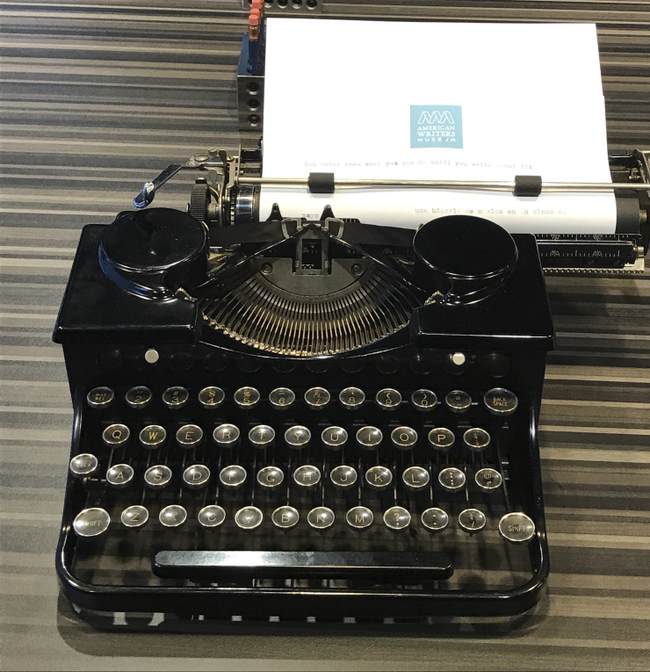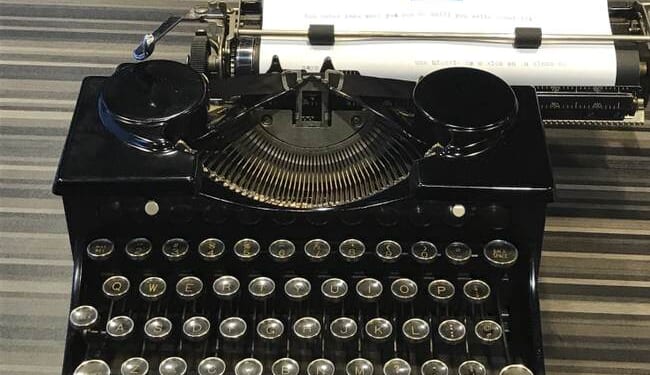
A few days ago, I came across a word I’d never seen before: NewPub. Curious, I looked it up, and to my delight, it described the very movement I’d once helped ignite without realizing it had a name.
In short, NewPub, or New Publishing, is the wave of independent, author-led publishing that rose against the stale hierarchy of “OldPub.” It’s defined by craft, ownership, and cultural renewal: writers publishing through small presses or selling directly to readers, building loyal communities instead of chasing institutional approval, and restoring storytelling as a moral and aesthetic art rather than an ideological tool.
Alongside Superversive fiction, it represents a renaissance still in its infancy: a reawakening of truth, beauty, and authenticity in literature long stifled by corporate culture.
It took me back about seventeen years or so, to the day I bought a web domain and had no idea what to do with it.
Before It Had a Name
As a writer and a reader, I’d grown beyond frustrated with what mainstream publishing was producing. It claimed to champion “fresh ideas,” but the direction was wrong. Romance novels drifted toward outright porn. “Representation” became intrusive, not enriching. Publishing houses prescribed stories instead of discovering them.
Established authors endured, but the midlist and debut ranks had flattened into sameness, especially in literary fiction. There were points of light, but wokeness was ruining stories. Where were the books born from passion rather than marketing memos? Where were the books that spoke to people like me?
So I bought the domain conservativefiction.com.
And then I sat on it.
I had no plan until a woman reached out. “What are you going to do with it?” she asked, thrilled to find someone with the same frustration.
So I started a group. My thought was simple: if there were two of us, there had to be more.
Not long after, I stumbled across a GoFundMe for a new venture called Liberty Island, created by two New York editors just as dissatisfied with the industry. I spoke with Adam Bellow for nearly two hours, unaware of who he was, and by the end, I knew we were kindred spirits.
I brought my fledgling group to Liberty Island, and together we became the first spark behind what would grow into an entire movement.
We were already living what would later be called NewPub; we just didn’t have the name yet.
At the time, it felt like rebellion—a handful of writers and editors who still believed stories should come from conviction, not committee. Liberty Island became our campfire, and from there the Conservative-Libertarian Fiction Alliance took shape.
We learned by trial and error what happens when writers stop waiting for permission and build instead of beg.
No one called it a renaissance then. We were simply tired of seeing beauty replaced by branding and truth by trend. But that’s exactly what it was.
The Old Order and Its Fall
For decades, OldPub—the legacy publishing world of Manhattan towers and committees—controlled what reached readers. It wasn’t always corrupt. Once, it nurtured conviction and originality. But by the time we came of age, it had collapsed under its own self-importance.
A pipeline had formed: the MFA-to-publishing circuit. University programs trained “literary” writers, and publishers told them what to produce. It became a closed ecosystem. Where once a novelist might have been a pipefitter, a nurse, or a cop writing from life, now most were professors chasing tenure.
They shared the same backgrounds and psychologies, and their stories all sounded alike. MFA programs polished style but sacrificed voice. Students learned what to say, not what to see. Publishers rewarded sameness as sophistication.
Gatekeepers (who often shared the backgrounds and psychologies of the aforementioned MFA writers) stopped guarding quality and began enforcing ideology. Every acquisition meeting asked, “Is this the kind of story we want to be seen publishing?” What they wanted wasn’t truth but conformity.
Editors once discovered voices; now they manufactured them. Marketing departments dictated demographics. Fiction became a sermon disguised as art, a glossy, hollow mirror of culture.
And when men and conservative readers quietly stopped buying books, the industry didn’t ask why. It dismissed them: “Men don’t read. Conservatives don’t read.” As if over half the population had lost imagination itself. Rather than reach out or try self-examination, the industry simply wrote those readers off.
It wasn’t that readers stopped wanting meaning. It was that OldPub stopped believing in it.
For those of us who still did, the choice was clear: fade into irrelevance or build something new.
The Birth of the Parallel
At first, it didn’t feel like the start of anything. It felt like survival.
Writers who refused to conform began drifting together: bloggers, indie authors, forgotten and orphaned midlisters, editors who still believed in craft over marketing. Most of us had no money or reach. What we had was conviction, and that was enough.
Self-publishing had cracked open the gates, but chaos ruled. Good writers drowned in a flood of unedited work. Readers learned to distrust anything without a corporate logo. The freedom was real but unstable, a fire without hearthstones.
That’s when networks began to form. People who wanted independence and professionalism at once. Small presses operated more like guilds than corporations. Writers taught and edited one another. We were rediscovering the apprenticeship model that had built every great literary age before this one.
We didn’t call it NewPub yet. We were simply determined to build something better. Some joined Liberty Island; others launched presses, blogs, and review sites.
And there were other isolated oases, like the Baen Barflies, one of the first online literary communities where readers and writers mingled freely. It was a place where fans could talk shop with professionals, where storytelling was treated as both craft and camaraderie. The Barflies embodied the spirit of NewPub long before the term existed: loyal readers, open conversation, and respect for good story above all.
We met in other forums too: blogging circles, Goodreads groups, Yahoo groups, and early writer boards. Anywhere serious storytellers found one another, a seed took root. Many of us eventually converged in the Conservative-Libertarian Fiction Alliance, which gave those threads a name and a home.
It was messy and imperfect, but it was alive. Even then, I could feel something larger taking shape. We weren’t just publishing books. We were reclaiming meaning.
The Philosophy of NewPub
If OldPub had become a cathedral to its own authority, NewPub was a forge. It was noisy and imperfect, but every strike meant creation.
The movement wasn’t about escaping corporate control; it was about rediscovering what storytelling was for. We had seen both extremes: the conformity of OldPub and the chaos of early self-publishing. What we wanted was something in between: freedom ordered toward excellence.
That became our unspoken creed.
We believed stories mattered, that art carried moral weight, and that freedom without discipline was as hollow as discipline without freedom. We believed in ownership, not only of rights and royalties but of craft and conviction. Most of us don’t make a living from it. We write because we can’t help it. The stories insist on being told. That’s the soul of NewPub: not commerce, but calling.
We began treating storytelling as moral architecture, something that could hold truth and beauty in tension and restore meaning in an age addicted to irony. We didn’t need permission to write about faith, courage, love, or redemption. We trusted readers to find what spoke to their souls.
And in doing so, we rebuilt something ancient: a Republic of Letters bound not by geography or institution but by respect. Writers, editors, and readers became allies in cultural reconstruction.
For most of us, NewPub isn’t a business model. It’s an act of faith: in readers, in truth, and in beauty’s power to break through the noise.
Recommended: The Light in the Dark: Redemptive Reads for Spooky Season
The Infrastructure Era
Every movement reaches a point where conviction needs structure to last.
That’s where NewPub stands now. The stories, writers, and readers exist. What’s still forming is the infrastructure that connects them.
The early years were raw and scattered. Small and micro presses carried pieces of the ethos: Baen with its defiance of fashion; Tuscany Bay Books publishing science fiction and faith; Raconteur Press, born from the Baen Barfly community and specializing in anthologies that celebrate adventure, honor, and heart; Silver Empire, briefly a bright flame. Today there’s also the emerging Ark Press, reportedly backed by Peter Thiel and built to endure.
Each proved one thing: the demand exists. Readers were starving for honest storytelling featuring heroism, sincerity, and wonder, and when they found it, they stayed loyal.
But the network remains fragmented. What’s missing isn’t talent or courage, but visibility.
That’s where the next layer of infrastructure comes in: platforms that connect, curate, and uplift.
The CLFA became one of the first, an alliance of writers, editors, and readers who believed story still mattered more than ideology. It gave the scattered a sense of belonging and legitimacy.
Upstream Reviews followed, offering professional criticism outside the old prestige system. It became a proving ground for small presses and independent authors judged on merit, not politics.
Projects like these began closing the circuit, giving the movement both voice and visibility.
Other ventures, such as Conservatarian Press, continue to build on that model, showing that independent doesn’t mean unpolished. And while still forming, Yggy and Conservative Fiction aim to serve as the next bridge: a central place where readers can find books, authors, and news about the movement as a whole, the living map of a parallel literary culture.
The pattern is clear. The infrastructure of NewPub isn’t being built by corporations but by believers who know that art, freely made and rightly ordered, can renew the world.
The Cultural Stakes
Every cultural movement reaches a moment of truth. For NewPub, that moment is near.
If it succeeds, it could restore more than literature. It could restore imagination itself—the ability to see beyond slogans into what it means to be human. Storytelling once carried moral imagination: courage, mercy, faith, and the reality of good and evil. When publishing lost faith in those truths, culture followed.
If NewPub endures, it may rebuild that chain of meaning connecting writer to reader, heart to heart. But if it fails, if the lights go out and the independent voices fall silent, the cost will be more than lost books. We’ll be left with stories as social programming, fiction engineered to instruct rather than inspire.
OldPub has shown what that looks like: art reduced to politics, imagination treated as a liability, beauty replaced by bureaucracy.
That’s why NewPub matters. It isn’t about who gets published. It’s about whether storytelling itself remains free, and therefore, whether we do.
The stakes couldn’t be higher. If we win, it won’t be through outrage, but through the quiet persistence of truth and beauty, carried word by word through the dark.
The Builders
When I look back now, I can see the shape of it, not as chance, but as something many of us felt stirring at once. I was simply one of the first to move. I wanted to help build a place where writers like us could exist again, to give shape and voice to what others already felt.
I didn’t know where it would lead. I only knew it had to begin. I was, in truth, the hobbit who set out for Mordor, not because I was brave, but because no one else seemed willing to take the first step.
None of us knew what would come of it. We were just writers trying to tell the truth in a world that had forgotten how to hear it. Yet over time, those scattered sparks began to converge: editors, reviewers, readers, and authors finding one another in the wilderness and realizing they weren’t alone.
Today, the builders of NewPub are too many to name, but some pillars stand out:
- Larry Correia, who proved that action, faith, and fun still belong together in fiction.
- Sarah Hoyt, who mentored a generation of writers with fire and grace.
- John C. Wright, whose moral imagination reminds us that beauty begins with order.
- Declan Finn, carrying the torch for Catholic pulp and proving conviction can thrill.
- Toni Weisskopf, quietly maintaining Baen’s legacy of independence.
- Roy Griffis, whose humor and courage make hope itself a weapon.
- Brian Niemeier, who gave this nameless rebellion its title—formalizing NewPub as the banner for what so many had already been building.
And before that, the Superversive movement planted by Tom Simon and Jagi Lamplighter, stories that lift rather than debase, turning darkness toward light instead of glorifying it. Their vision laid much of NewPub’s philosophical foundation. Superversive fiction remains its brightest branch: hope, redemption, and moral imagination made manifest.
I count myself among these builders, not because I built the biggest or best platform (I don’t think I did, and certainly not alone!), but because I helped build the first door, and then watched others walk through it, carrying the light farther than I ever could alone.
The work isn’t finished. It may never be. But that’s all right. Civilizations are not rebuilt in a day. They’re rebuilt word by word, story by story, heart by heart.
This is what NewPub truly is: not a brand or a strategy, but an act of faith: that beauty is still real, that truth is still worth telling, and that even now, in a world bent on forgetting, the storytellers are still out there, quietly building while ignoring the gatekeepers.
Editor’s Note: Support and follow PJ Media’s latest reporting on President Trump’s historic work to restore the greatness and culture of America. Take advantage of our Schumer Shutdown Sale — join PJ Media VIP and use promo code POTUS47 to get 74% off your new membership.










